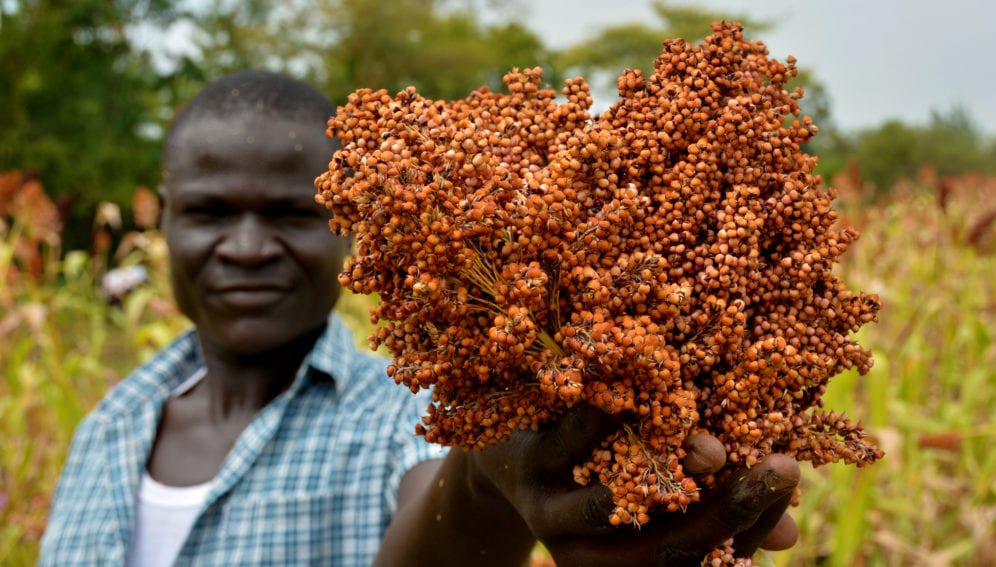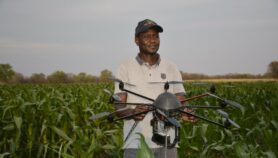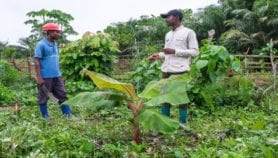04/07/19
Tap digital solutions to transform Africa’s agriculture

By: Laura Owings
Send to a friend
The details you provide on this page will not be used to send unsolicited email, and will not be sold to a 3rd party. See privacy policy.
[CAPETOWN] Despite digital technologies in African agriculture being worth US$2.6 billion and reaching over 33 million registered users, its benefits can only be realised if policymakers and developers put farmers first, a report says.
According to the report, Africa’s agriculture could be transformed through the strategic use of digital technologies and innovations such as mobile phones in farming but challenges are slowing the progress that could be made.
“With the interest in digitalisation for smallholder agriculture growing, we wanted to establish a baseline of existing digital solutions in Sub-Saharan Africa,” says Michael Hailu, director of the Technical Centre for Agricultural and Rural Cooperation, which launched the report last month (21 June). “The hope is for our findings to be built into global policies and investment practices to support strategies across the entire digital ecosystem.”
“While access to the internet is growing rapidly on the continent, it is by no means ubiquitous or particularly fast”
Tim Willis, Aerobotics
The report identifies at least 390 active digital solutions in Africa. These solutions contribute to as much as 73 per cent increase in farm productivity and up to 37 per cent increase in income. Solutions that packaged more than one service, called super platforms, contribute to improved yields of up to 168 per cent, the report adds.
The report is the result of research approaches conducted since September 2018 such as interviews with about 120 agribusiness leaders and technology experts; survey of 175 active agricultural digital enterprises; field visits and case studies in Ethiopia, Nigeria, Senegal, Ghana and Rwanda; and reviews that focused on Kenya and other countries.
“While there are digital agricultural solutions present in at least 43 out of 49 Sub-Saharan African countries, over half of the solutions are headquartered in East Africa and nearly two-thirds of registered farmers across all solutions are based in East Africa, with Kenya leading the way,” says the report. “Our estimates suggest that 42 per cent of registered farmers and pastoralists actually used the solutions they registered for with any frequency.”
Video credit: Technical Centre for Agricultural and Rural Cooperation
The report makes recommendations such as skills development, infrastructure investment and improving inclusivity for boosting the digital footprint in the agricultural sector.
Tim Willis, chief operating officer at Aerobotics, a South African-based agritech start-up, tells SciDev.Net that ability of smallholders to use digital solutions intelligently can help transform agriculture on the continent.
“The value of agritech at scale for Africa is that it can help improve yields, increase food security and improve the quality of life for billions,” he says.
Like the report, he suggests policymakers in Africa can support digital solutions by investing in infrastructure as well as communication and financial technologies.
He adds that start-ups use an approach to business, which involves adapting technologies in response to user engagement instead of relying on only registered users.
“Companies that adopt this methodology can likely find a profitable and scalable niche that adds significant value for farmers in the short-term and add more value to the continent in the long-term,” Willis explains.
This piece was produced by SciDev.Net’s Sub-Saharan Africa English desk.
References
Digitisation of African agriculture report 2018-2019 (Technical Centre for Agricultural and Rural Cooperation, June 2019).













